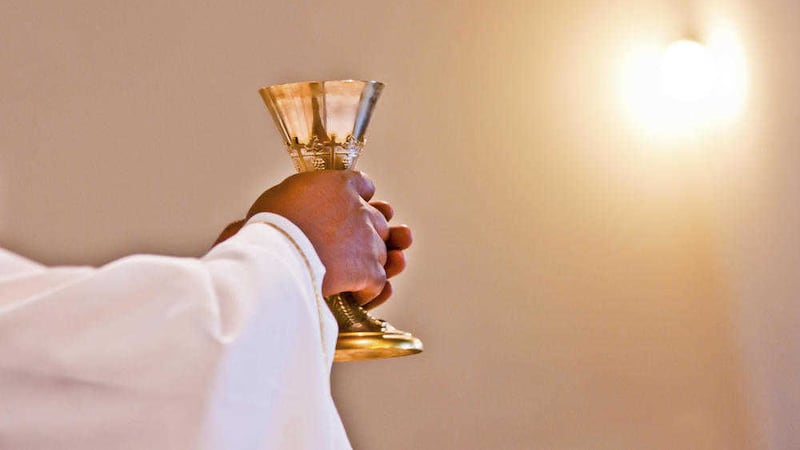JUST when we thought it was safe for the Irish Catholic Church to put its head above the parapet again, its hierarchy appears to have split over the suitability of Maynooth as a training centre for priests. For most people, this development is as unexpected as an argument over whether the Vatican is a suitable location for the Pope.
Dublin Archbishop, Diarmuid Martin, said that in future, his seminarians will train in Rome, because the climate of anonymous allegations about inappropriate sexual behaviour in Maynooth was "dangerous and poisonous." The "strange atmosphere of innuendo" was "unsettling" for his students and he must do something about it. Seminarians from the rest of Ireland will continue to attend Maynooth.
Since we have no idea of the accuracy of the allegations, we cannot assess the validity of Dr Martin's decision. But that is hardly the point. His language might be expected from an opponent of the Church, rather than from one of its leaders. Not so long ago you could have been excommunicated for that sort of talk.
The Archbishop's claims came in the media silly season, thereby guaranteeing extensive press coverage. So what is going on in the Church's leadership and where does it leave an organisation, which is struggling for relevance and respect in post-Catholic Ireland?
The explanation for this bizarre episode appears to revolve around Dr Martin, who is known to be something of a maverick. He has a good reputation for the way he handled the child abuse scandal. He handed over 80,000 files from the archdiocesan archives to the Murphy Commission, including 5,000 papers which his predecessor, Desmond Connell, took court action to keep secret.
While the media were quite rightly lambasting other Church leaders, Dr Martin emerged with an enhanced reputation. Being a maverick is not always a bad thing. His positive public image is also based on his skill in handling the media, an ability which most bishops lack.
So why has he spoken out? His reputation within the Church suggests that Maynooth is just a hook on which to hang a bigger picture. Certainly Maynooth needs reform as part of a complete overhaul of clerical training. Students might be better living in somewhere like Ballyfermot and commuting to study by public transport, to experience the real world.
In addition to training them to pray for the poor, for example, it might also be helpful for them to study economics, sociology and social policy to understand why poverty exists and what political measures might be taken to tackle it. But that is not the sort of change which Dr Martin seeks. He is playing more to the conservative theology gallery.
He also appears to be promoting Dublin above Armagh in speaking for the Irish Church. For example, Armagh can handle the pettiness of Stormont, but only the Dublin Archdiocese can deal with the Irish government. (Even the Church is now partitioned.) It may not have been a coup, but it was certainly a statement of intent. Armagh's silence suggests that he won.
Finally, he may also have been pledging support for the financially challenged Irish College in Rome. In light of his allegations, he might have been expected to instigate Maynooth's reform. Instead, he dismissed it entirely in favour of a different institution, which suggests that he is not so much anti-Maynooth as pro-Rome.
He trained in Rome and spent a significant part of his career there, which has left him something of an outsider within the Church. Some suggest that he will retire to Rome and that his statements represent the beginning of that process.
Whatever his motives, he has significantly damaged the Church's already tarnished reputation. His statements have done little to protect the decent teachers and students in Maynooth and while some may see it as nothing more than an episcopal tantrum, it does seem to have had a wider intent.
It may have been a swipe at the Church's weak leadership on social and economic affairs. After all, the hierarchy made little effort to analyse or even criticise Ireland's economic collapse and like the communist parties in Eastern Europe, their fall from political dominance has left them in denial and disarray.
They may eventually address these new allegations, but until they recognise that the Church's problems extend far beyond Maynooth, Dr Martin will continue to have free rein to criticise them, whether from Dublin, or more likely, from Rome.









